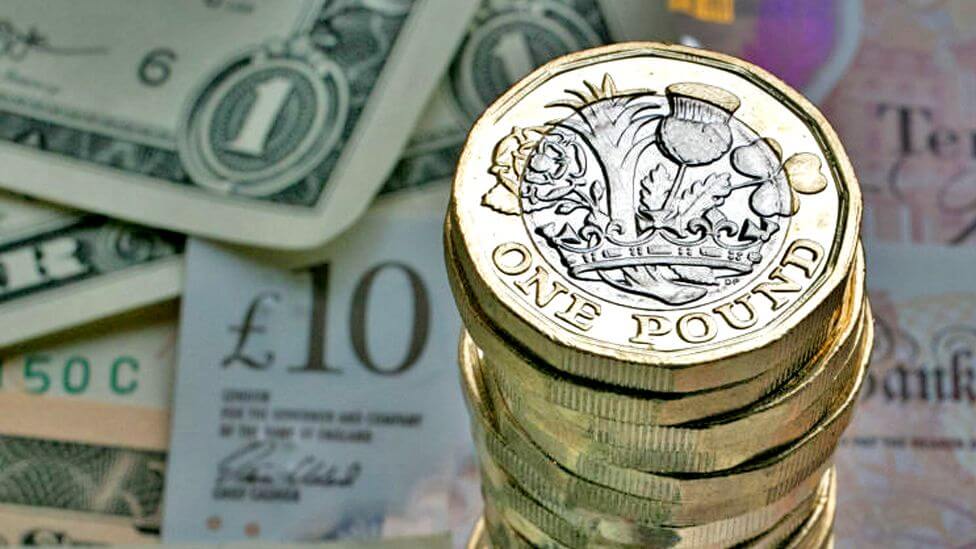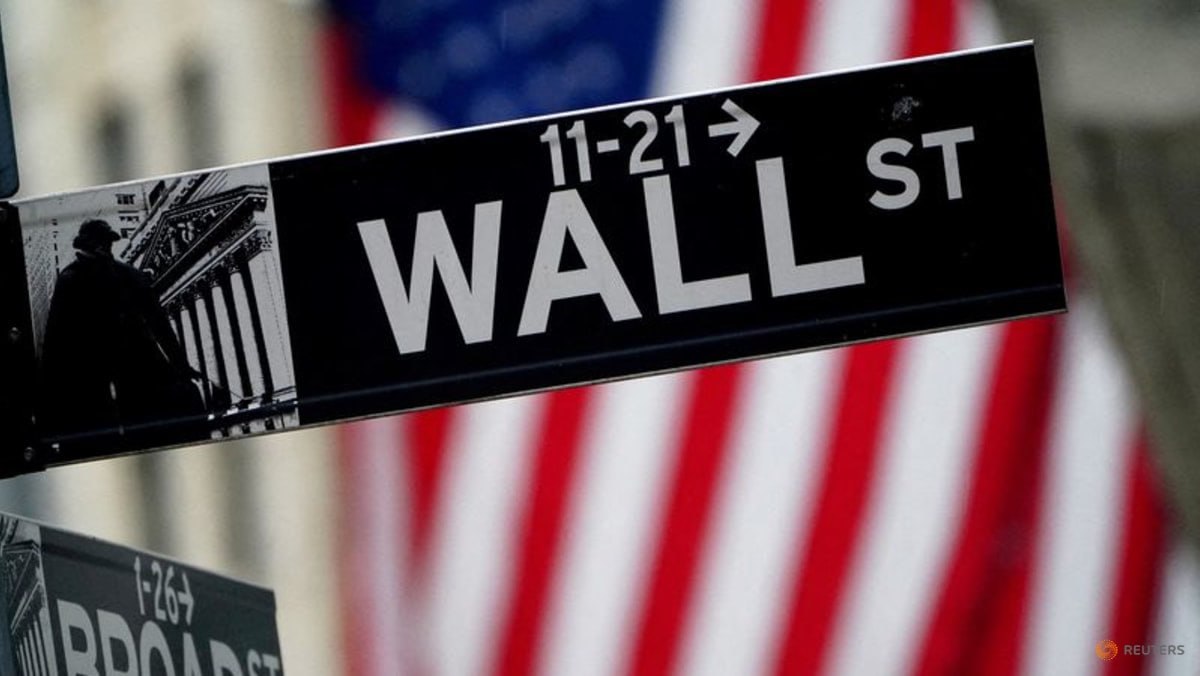
Asian equity markets mostly firmed ahead of the weekend and next week’s lunar new year holiday. Markets had ended lower in the US and Europe yesterday. The US Federal Reserve’s Brainard, usually considered to be a dovish rate-setter, said policy will need to be restrictive for some time to get inflation down. Meanwhile, European Central Bank President Lagarde said inflation remains “way too high”. Data from Japan revealed a rise in core CPI (excluding fresh food) to 4.0% in line with forecasts but maintaining speculation about future Bank of Japan policy changes.
UK data released earlier today were more downbeat than expected. January GfK consumer confidence unexpectedly fell back to -45 from -42 in December, although still above September’s all-time low of -49. The gauge of personal finances for the next twelve months improved, but other components such as the climate for major purchases fell. Also disappointing expectations were official December retail sales which declined for a second month in a row. Headline retail sales were down 1.0%, driven by significantly lower non-food sales while grocery sales were down slightly. The ONS said consumers were cutting back due to increased prices and affordability concerns.
In the Eurozone, German producer price inflation fell for a third consecutive month to 21.6% in December from 28.2% in November. The ECB’s Lagarde speaks in Davos later today and, as noted above, continues to express concern that inflation is still too high. That supports the view that ECB is likely to raise interest rates by 50bp at the next meeting in early February, which would bring interest rates (the deposit rate) up to 2.5%. There are unconfirmed reports that the ECB may consider smaller hikes after the next meeting, but more hawkish rate-setters will be seeking another 50bp hike.
US existing home sales data are expected to show another decline as higher interest rates take effect. That would be the eleventh straight fall. Ahead of next week’s blackout period, the Fed’s Harker and Waller are both scheduled to speak today. Harker has recently indicated that he favours a smaller 25bp rate rise at the next meeting.
The pound weakened following the downbeat consumer data this morning. GBP/USD declined from an overnight high of just below 1.24 overnight towards 1.2350, although some of the fall has since been reversed. EUR/USD fluctuated around the 1.08 level. UK 10-year gilt yields closed lower at 3.28%, while US 10-year Treasury yields edged above 3.4% overnight.

Asian equity markets are mixed this morning with Japan down but most others up. Chinese President Xi has warned that traveling over the lunar new year holiday may further spread the latest outbreak of Covid in China. The US government is expected to reach its debt ceiling limit possibly as early as today after which it can longer issue new Federal debt. It will take contingency measures near term but is expected to run out of leeway by the summer unless Congress agrees to raise the ceiling.
The Norwegian central bank is expected to leave interest rates unchanged at its latest policy update following further signs in the latest inflation data that price pressures are cooling. The Norges Bank was one of the first to raise interest rates at the start of the current hiking cycle in late 2021 and now seems set to be one of the first to stop tightening. However, one last hike of 25 basis points is currently still generally expected in March.
December US housing starts are forecast to show another large fall. Some of that will be a result of the big pre-Christmas storm but much of it will reflect underlying weakness due to higher interest rates. Also after a much bigger than expected fall in the January New York Federal Reserve manufacturing survey, the equivalent for the Philadelphia area will be watched closely. In Japan an expected further rise in CPI inflation this evening may add to concerns that Bank of Japan monetary policy is set to become more hawkish.
European Central Bank President Lagarde is scheduled to speak at the Davos conference today. She is likely to reiterate previous cautious guidance that inflationary pressures are still too high and so Eurozone interest rates have further to rise. Several US Federal Reserve policy makers are also set to speak, including Fed Vice Chair Brainard. She is generally considered to be one of the more dovish members of the interest rate setting committee so it will be interesting to see whether there are any signs that her support for further hikes is wavering.
Early Friday, UK data for retail sales and UK consumer confidence will provide further evidence on the impact of cost-of-living increases on consumer activity. Retail sales may have increased in December, with the cold weather snap and the World Cup potentially providing a boost. GfK consumer confidence may have improved for a fourth month in a row to -40 in January. The context, though, is that retail sales are still likely to have contracted during Q4 for the sixth successive quarter, and consumer confidence remains at historically very weak levels.
US bond yields fell sharply yesterday after weak economic data suggested that the Fed may soon stop raising interest rates. UK gilt yields also declined albeit more modestly. In currency markets, the main crosses were little changed but the Aussie dollar declined after weaker-than-forecast labour market data.

Asian equities are mixed this morning as the Japanese market is up sharply, but others are seeing more modest rises or small falls. The move in Japan followed confirmation from the Bank of Japan that it had left its monetary policy unchanged this month. That news also led to a decline in the yen as there had seemingly been some concern in markets beforehand that the BoJ would follow up on last month’s decision to raise its target for long-dated bond with a further tightening move. Instead, the soon to leave BoJ Governor Kuroda reiterated continued support for a highly stimulatory policy position.
Just released data showed that UK annual CPI inflation (Dec) dropped to 10.5% from 10.7% in November. As expected, the fall is mostly due to a big decline in petrol prices as ‘core’ inflation was unchanged from November at 6.3%. Another fall seems likely next month as petrol and food prices continue to ease. Moreover, inflation seems set to fall sharply further in coming months and October’s inflation rate of 11.1% now looking increasingly likely to have been a peak. However, still elevated domestic inflationary pressures from a tight labour market, which could continue to exert upward pressure on services prices, will remain an area of concern for the Bank of England.
US December retail sales are forecast to have fallen sharply and industrial production is also expected to be down. Some of that weakness will probably reflect the impact of the severe storm that hit the US late in the month. Moreover, as US retail sales are not adjusted for inflation some of the decline in that area will be a price effect. However, it does seem that underlying activity is also weakening with sales of big-ticket items such as cars expected to be sharply lower.
Meanwhile, US December PPI data are likely to reveal further disinflationary pressure in the pipeline. Last week’s US CPI data for December showed that goods inflation is now falling as bottlenecks ease and prices in some areas, notably autos, are much lower than a year ago. The Federal Reserve’s Beige Book of anecdotal evidence on the economy will also provide indications on these trends. Several Fed policymakers are also set to speak.
In the Eurozone, the final reading for December CPI is expected to confirm that headline inflation fell for the second successive month. However, European Central Bank clearly seem concerned that core inflation rose to a new high and as a result they seem set to raise policy interest rates by another 50 basis points in February.
In currency markets sterling has risen this morning against the US dollar and, albeit to a lesser extent, against the euro as today’s inflation data reinforced the case for a further interest rate hike by the Bank of England. Today’s US releases will be the next key focus for markets.

The rally in Asian equity markets this year took a breather as China reported a sharp slowdown GDP growth in 2022 of 3.0% compared with 8.4% in 2021. The outturn, nevertheless, was slightly better than expected, with output in Q4 stagnating rather than contracting as forecast. December industrial production and retail sales in China also beat expectations. Japanese stocks were higher ahead of the key Bank of Japan policy decision. US Treasury yields were higher in overnight trading.
UK labour market data released earlier today is the first of a set of key releases this week. The unemployment rate was unchanged at 3.7% for the three months to November, while the number of job vacancies eased to 1.16m (still historically high), providing some further signs of slowing labour market. Nominal pay growth, however, was stronger than expected, rising to 6.4% for both the headline and ex-bonus measures, which will likely maintain pressure on the Bank of England for further rises in policy interest rates.
Attention will turn to early tomorrow’s UK December CPI at 7am. It is expected to have fallen for a second month, confirming that inflation is likely past its peak. Still, we expect it to remain in double digits for now and predict a decline to 10.3% from 10.7%, driven partly by lower petrol prices. We also expect core CPI to fall to 6.1% from 6.3%. How quickly inflation falls this year is subject to several factors, including whether lower wholesale gas prices are maintained and supply bottlenecks continue to ease, and also whether services inflation moderates sufficiently as the labour market cools.
The January German ZEW survey is the main Eurozone release today. It is a survey of investors rather than businesses, but it contains useful information on potential economic prospects. We forecast a rise in the economic sentiment index to -15.0 from ‑23.3, which would point to a further improvement in prospects and raise hopes of a milder downturn. The current situation index is also expected to rise to -57.0 from -61.4.
In the US, the NY Empire manufacturing survey is one of several regional Fed surveys for January to be released. It is predicted to show a rise in its headline index to -5.0 from -11.2, still in negative territory but reversing some of December’s sharp fall. Canadian CPI is forecast to fall to 6.4% from 6.8%.
The Bank of Japan will provide a policy update early Wednesday. Although no policy change is expected, markets will be on alert for any unexpected announcements. It surprised markets in December by tweaking its yield curve control policy to allow more upside for 10-year JGB yield moves.
There was little change in major currency pairs ahead of the reopening of US markets after a public holiday yesterday. GBP/USD is steady at around 1.22 and EUR/USD is similarly little changed at 1.08. The Japanese yen is trading slightly lower this week ahead of the Bank of Japan policy announcement.

Following gains recorded on Wall Street on Friday, equities across Asia started today mostly higher on hopes that global inflationary pressures are continuing to ease. However, gains have been trimmed with stocks across the Asia-Pacific region now trading more mixed. In particular, speculation of a shift in monetary policy continues to weigh on Japanese markets ahead of the Bank of Japan’s (BoJ) next policy decision on Wednesday. Expectations that the BoJ will signal a further move away from its ultra-easy monetary policy stance have also pushed the yen to its strongest level in over seven months versus the US dollar.
It was another positive week for risk assets supported by further signs that US inflation is on the way down and that Fed interest rates may be near a peak. That resulted in further downward pressure on Treasury yields and the US dollar. US December CPI fell to 6.5% from 7.1%, a sixth consecutive decline, and the core rate (which excludes food and energy) moved down to 5.7% from 6.0%. Both outturns were in line with forecasts and support expectations of a further moderation in the pace of Fed hikes at the next policy update. Downward trends in inflation have also begun in the UK and the Eurozone. Data later in the week are expected to show a sizeable drop in inflation in the UK, albeit headline CPI is expected to remain in double-digit territory.
Today’s calendar is devoid of any major releases, partly due to US markets being closed for Martin Luther King Jr day. There are no releases of note across Europe either with the domestic focus limited to Bank of England Governor Bailey’s appearance, alongside his Financial Policy Committee (FPC) colleagues Sam Woods, Jonathan Hall and Dame Colette Bowe, before a Parliamentary Treasury Committee to testify on the BoE’s December Financial Stability Report. A key topic of discussion is likely to be the potential financial stability implications from the elevated cost of living and higher borrowing costs.
Early tomorrow morning, the latest UK labour market update is expected to show further signs that labour demand is softening, consistent with our Sector Tracker and Business Barometer reports, but it may take longer for the full impact on pay growth to appear. We expect a marginal uptick in the unemployment rate to 3.8% in the three months to November and a fall in employment of 50k compared with the previous three months. Average earnings growth is expected to remain at 6.1% for the headline measure and rise to 6.3% for the regular pay measure excluding bonuses.
Ahead of that, Q4 China GDP data are forecast to show a slowdown in the year-on-year rate of growth to 1.6% from 3.9% in Q3 due to ongoing restrictions during most of the quarter and the rise in infection rates in December after restrictions were relaxed.
Amid the ongoing improvement in risk sentiment, the US dollar has continued to edge lower. The Bloomberg US dollar index is trading around levels not seen since last May. EUR/USD has moved back above 1.08, while GBP/USD is trading above 1.22.


Asian equity markets mostly held on to gains ahead of the key US inflation data later today. In China, consumer price inflation edged up to 1.8% in December from 1.6% in line with expectations. Factory gate price inflation, however, was more negative than expected at -0.7% versus forecasts for -0.1%, which may reflect the near-term impact of rising infection rates as Covid restrictions are lifted.
There are no notable UK data releases today, but early tomorrow’s monthly GDP figures for November will be closely watched for indications of whether GDP contracted for a second consecutive quarter in Q4. Both the month-on-month fall of 0.6% in September and the subsequent 0.5% rebound in October will have been impacted by the timing of the late Queen’s funeral. The November estimate therefore will be a cleaner indicator of the underlying trend. Survey evidence and the retail sales reading suggest that activity declined, and we look for a monthly GDP fall of 0.3%. Later today, BoE MPC member Catherine Mann will deliver a lecture on challenges facing the UK economy and monetary policy. She dissented in favour of a more hawkish 75bp rise at the last meeting.
In the Eurozone, there is likely to be some attention on the ECB Consumer Expectations Survey, especially with concerns about second-round effects that could keep inflation above the 2% target over the medium term. Even though headline CPI inflation fell in December due to lower energy, core inflation (excluding food and energy) continued to accelerate. The last results for the ECB Consumer Expectations Survey showed inflation expectations one year and three years ahead at 5.4% and 3.0%, respectively, both well above the 2% target.
The most important release today is the US December CPI inflation report which seems certain to show a further fall in headline inflation following the recent decline in energy prices. We expect headline inflation to show a sixth consecutive decline to 6.6% from 7.1% in November (and a June high of 9.1%). We also expect the ‘core’ rate to have fallen to 5.8% from 6.0%, mainly reflecting a decline in goods price inflation as global bottlenecks continue to ease, although services inflation may rise again reflecting domestic pressures including from the labour market. Overall, US inflation is moving in the right direction but there needs to be more progress before the Federal Reserve even considers declaring victory. Fed speakers later today include Harker, Bullard and Barkin.
The US dollar is slightly lower overall ahead of the inflation data later today with markets anticipating further signs of easing price pressures. GBP/USD is little changed, remaining above 1.21, while EUR/USD is marginally firmer. US 10-year Treasury yields are little changed just above 3.5%. The Japanese yen is the outperformer on unconfirmed reports that the BoJ may tweak policy further (it has already allowed 10-year yields to rise further than before).

Asian equity markets are mostly up this morning, although Chinese indices are down. The World Bank highlighted downside risks for economic growth this year as it cut its 2023 global growth forecast to 1.7% from its previous estimate of 3.4%. In comments yesterday, US Federal Reserve Chair Powell did not talk about the immediate interest rate outlook but did warn that unpopular decisions may be necessary to control inflation. Meanwhile, another Fed policymaker (Bowman) said that further monetary policy tightening was necessary.
Today’s data calendar is very quiet with nothing of real note in the Eurozone, UK or the US. Italian retail sales for November are expected to post a second consecutive monthly fall but that is unlikely to have any impact on markets. Tonight’s Japanese balance of payments report is predicted to show a rise in the current account surplus in November.
With today’s calendar so sparse, focus is inevitably turning to tomorrow’s US CPI report, which is probably the key release of the week for markets. Recent indications from a number of economies, including both the Eurozone and the US, that inflation has peaked is pushing down bond yields and market expectations for policy interest rate rises. Tomorrow’s US CPI seems certain to show further a fall in headline inflation given the recent decline in energy prices, while core goods inflation may have fallen again on signs that bottlenecks have eased. However, services inflation may go up again given that tight labour markets seem still to be fuelling domestic cost pressures.
The latter trend could still have a crucial impact on the evolution of monetary policy over the next few months. Today is light in speeches from central bank central policymakers. However, several updates are scheduled for later this week and, with the growing expectation that we may be close to a pivot point on policy, all comments will be followed particularly closely. So far, policymakers seem to be playing down the chances of an early pivot. Of crucial immediate interest is whether and by how much the Bank of England, European Central Bank and US Fed plan to raise interest rates at their upcoming policy updates in early February.
Early tomorrow Chinese CPI and PPI inflation reports for December will be released. Both measures have slowed in recent months and producer prices have fallen for two months in a row. Inflation is expected to have remained low in December, but it will be interesting to see whether it will now bounce given that Covid restrictions are being eased.
| |

There was renewed caution during the Asia-Pacific trading session after the recent rally in stock markets as investors await Thursday’s key US CPI inflation data. The Nikkei is higher as it plays catch-up after reopening from a public holiday in Japan. Comments from US Fed officials added to the more cautious mood. Both the Fed’s Daly and Bostic said that they expect policy rates to continue to increase. In the UK, Bank of England Chief Economist Pill yesterday noted signs that the labour market is starting to turn but he also said that inflation could prove to be more persistent. His speech suggests that policy rates will be raised again in February.
With a relatively quiet calendar today, there will be some attention on the participation of several prominent officials at the Swedish Riksbank’s international symposium on central bank independence. It will be interesting to see whether there will be fresh insights on prospects for near-term monetary policy with the Fed, ECB and Bank of England all expected to raise interest rates again at their next meetings in early February. BoE Governor Bailey today will moderate a panel which includes Bank of Japan Governor Kuroda, Bank of Canada Governor Macklem and ECB Executive Board member Schnabel. Later, Fed Chair Powell is also scheduled to take part in a panel discussion.
There are no major UK data releases ahead today. Overnight, the British Retail Consortium (BRC) reported a decent 6.5% rise in like-for-like sales in December compared with a year earlier, driven by stronger food sales. These figures, however, are not adjusted for and are partly flattered by higher inflation. The Office for National Statistics will release official December figures next week.
Earlier this morning also saw the release of French industrial production data for November. They showed a rise of 2.0%m/m after the 2.5% fall in October Yesterday’s German figures also showed a rebound after an October decline. The outturn for the Eurozone will be released on Friday. Overall, the sector is continuing to be affected by weak demand, but there are hopes that prospects are starting to improve.
The only notable US release today is the December NFIB small business optimism index which appears to have broadly stabilised in recent months albeit remaining at weak levels. Markets are looking for a small decline in the headline index to 91.5 from 91.9 in November. As mentioned above, this week’s market attention, however, will be on Thursday’s US CPI report for further signs that both headline and core inflation is moderating.
Currencies remain in relatively tight ranges for now, with the US dollar paring some of its recent declines. The pound touched $1.22 but has since edged back down. US 10-year Treasury yields are broadly steady at recent lows.

Equities are mostly trading higher across the Asia-Pacific region buoyed by expectations that US interest rates may not have much further to rise, following last week’s reports of a contraction in the US services ISM and a slower pace of payroll hiring in December. Sentiment has also been boosted by the further reopening of China’s borders over the weekend by lifting quarantine rules for inbound travellers.
The extent to which major central banks will push up interest rates further – following sharp increases last year – remains a key consideration for markets in the early stages of 2023. Signs that inflation may have peaked across a number of developed economies around the turn of the year have fuelled expectations that interest rates may also reach a peak soon, with markets pricing in highs around mid-year. Nevertheless, with significant increases in policy rates still expected – particularly in the UK and Eurozone – incoming data releases will play a key part in how much of this expectation gets realised, especially with recession fears continuing to linger.
Ahead of more important economic data – in the shape of US CPI and UK GDP – later on this week, today’s economic data slate is relatively light on key releases. The Eurozone unemployment rate is expected to have stayed at 6.5% in November, while the Eurozone Semtex investor confidence report for January is forecast to show an improvement (consensus: -18 vs -21 in December), reflective of the positive start made by equities so far this year.
Domestically, no data releases are due today although the Bank of England’s Chief Economist, Huw Pill, is scheduled to speak on ‘The UK Economic and Monetary Policy Outlook’ at an even hosted by the Money Market Association of New York University. Speaking ahead of the December meeting, at which Mr Pill voted with the majority to increase Bank Rate by a further 50bp, he said that the Bank was “acting to pre-empt the danger that inflation in a persistent way departs from target”. With inflation still in the doubt digits, markets are factoring in a strong likelihood of another 50bp increase at the February MPC meeting.
In the US, following last week’s mixed US labour market report, markets will be watching comments from Federal Reserve officials, Bostic and Daly, this afternoon. However, with both not voting members of the FOMC this year, their comments may attract limited market reaction.
Overnight, the British Retail Consortium (BRC) will release its December retail trade report, which will give an insight into how the sector fared across the typically busy Christmas period.
The US dollar has fallen further overnight, adding to the decline seen on Friday post the December US payrolls and services ISM reports. US 2-yr Treasury yields are marginally higher but still remain over 20bp lower relative to levels that prevailed prior to the release of those reports on Friday.
CFDs are complex instruments and come with a high risk of losing money rapidly due to leverage. You should consider whether you understand how CFDs work and whether you can afford to take the high risk of losing your money. Trading derivatives is risky. It isn't suitable for everyone; you could lose substantially more than your initial investment. You don't own or have rights to the underlying assets. Past performance is no indication of future performance and tax laws are subject to change. The information on this website is general in nature and doesn't consider your personal objectives, financial circumstances, or needs. Please read our legal documents and ensure that you fully understand the risks before you make any trading decisions.
The information on this site is not intended for residents of Canada, the United States, any other restricted jurisdictions (e.g. blacklisted FATF countries) or use by any person in any country or jurisdiction where such distribution or use would be contrary to local law or regulation.
Moneta Markets is a trading name of Moneta Markets Ltd, authorised and regulated by the Financial Services Authority of Seychelles with License No. SD144. Moneta Markets Ltd is registered and located at Room B11, 1st Floor, Providence Complex, Providence, Mahe, Seychelles which operates under www.monetamarkets.sc.
You should consider whether you’re part of our target market by reviewing our , and read our other legal documents to ensure you fully understand the risks before you make any trading decisions. We encourage you to seek independent advice if necessary.

Follow our channels for more